Your search “Keep%20the%20death%20penalty%abolished%20in%20the%20ePhilippfines%20e%20e%20e%20e%20e%20e%20e%20e%20e%20e%20e%20e/page/q26%individuals%20than%20eOhio%intends%20to%20eexecute%20death%20esuffer%20efrom%20esome%20ecombination%20of%20esevere%20emental%20eillness,%intellectual%20edisability,%20eserious%20echildhood%20etrauma%20efrom%20ephysical%20and%20esexual%20abuse,%20for%20ewere%20eyoung%20eadults%20ewith%20eimpaired%20ejudgment%20ewhen%20the%20ecommitted%their%20ecrimes. ”
Document(s)
Reducing Facial Stereotype Bias in Consequential Social Judgments: Intervention Success With White Male Faces
By Youngki Hong, Kao-Wei Chua, & Jonathan B. Freeman, Columbia University, on 25 January 2024
2024
Article
United States
More details See the document
Published on December 18, 2023.
Initial impressions of others based on facial appearances are often inaccurate yet can lead to dire outcomes. Across four studies, adult participants underwent a counterstereotype training to reduce their reliance on facial appearance in consequential social judgments of White male faces. In Studies 1 and 2, trustworthiness and sentencing judgments among control participants predicted whether real-world inmates were sentenced to death versus life in prison, but these relationships were diminished among trained participants. In Study 3, a sequential priming paradigm demonstrated that the training was able to abolish the relationship between even automatically and implicitly perceived trustworthiness and the inmates’ life-or-death sentences. Study 4 extended these results to realistic decision-making, showing that training reduced the impact of facial trustworthiness on sentencing decisions even in the presence of decision-relevant information. Overall, our findings suggest that a counterstereotype intervention can mitigate the potentially harmful effects of relying on facial appearance in consequential social judgments.
- Document type Article
- Countries list United States
Document(s)
Leaflet – World Day 2022
By the World Coalition Against the Death Penalty, on 24 June 2022
2022
World Coalition
arfrMore details Download [ pdf - 1095 Ko ]
Leaflet for the 20th World Day against the death penalty (2022), on torture and the death penalty.
- Document type World Coalition
- Available languages للیوم العالمي لمناھضة عقوبة الإعدام كتيب باللغة العربيةBrochure - Journée mondiale 2022
Document(s)
The death penalty and the prohibition of torture and other cruel, inhuman or degrading treatment or punishment
on 21 August 2021
2021
NGO report
World Coalition
Cruel, Inhuman and Degrading Treatment and Punishment
frMore details See the document
The signatory organizations are convinced that the death penalty is incompatible with the prohibition of torture and cruel, inhuman or degrading treatment or punishment, which is a peremptory norm of international law (jus cogens) and should thus be abolished. The death penalty is only tolerated by international law and standards to the extent that it may only be imposed for the most serious crimes and applied in a way that causes the least possible suffering. However, the signatory organizations believe that from the sentencing to the execution, the death penalty inevitably causes physical harm and psychological suffering amounting to torture or ill-treatments.
The present position paper documents the extent to which international and regional organisation have already recognised a violation of the absolution prohibitionof torture in the application and imposition of the death penalty.
- Document type NGO report / World Coalition
- Themes list Cruel, Inhuman and Degrading Treatment and Punishment
- Available languages La peine de mort et l'interdiction de la torture et des peines ou traitements cruels, inhumains ou dégradants
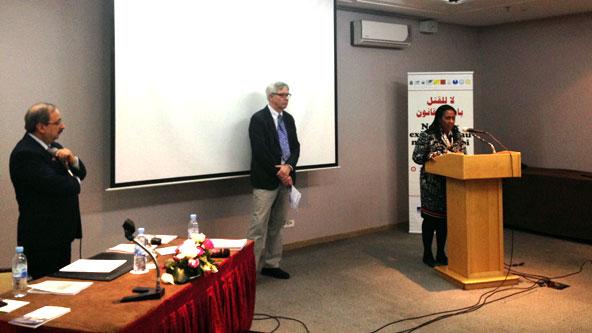
Article(s)
World Coalition publishes abolition guide for parliamentarians
By Maria Donatelli (in Rabat, Morocco), on 9 December 2014
A new handbook gives members of parliaments arguments and advice to work towards abolition in their countries and to support their colleagues abroad.
2014
Morocco
Public Opinion
Document(s)
Data Mapping: Women on Death Row
By World Coalition against the Death Penalty , on 1 August 2023
2023
NGO report
Gender
frMore details Download [ pdf - 813 Ko ]
In 2021, the 19th edition of the World Day Against the Death Penalty (“World Day” on October 10) was dedicated to the invisible reality of women on death row, paving the way for new data on the issue of women sentenced to death. Many members of the World Coalition Against the Death Penalty (“World Coalition”), in preparation for 10 October, conducted research to document the situations of women facing the death penalty around the world. To systematize the information collected and have a global understanding of women sentenced to death, the World Coalition conducted a data systematization exercise.
This short report presents the main conclusions of this country exercise. These findings are a compilation of existing data available to the World Coalition Against the Death Penalty and its members organization up to December 2022.
- Document type NGO report
- Themes list Gender
- Available languages Cartographie de données : les femmes dans le couloir de la mort
Article(s)
World Coalition calls on Canada to keep up its efforts against the death penalty
on 10 March 2009
The World Coalition has sent a letter to Canadian Prime Minister Stephen Harper, asking him to “protect its nationals sentenced to death abroad, whether it is in a democratic country or not”.
2009
Canada
Canada
Clemency
United States
Article(s)
From Italian prisons to Texas death row
on 27 March 2008
A conference held near Naples, Italy last month helped around 200 attendees, most of them secondary school students, understand the death penalty situation in the US and relate it to prison issues in their own country.
2008
Death Row Conditions
Italy
United States
Document(s)
Geometrical Justice: The Death Penalty in America
By Scott Phillips and Mark Cooney, on 12 October 2022
2022
Book
United States
More details See the document
In their new book, released in the Summer of 2022, University of Denver criminology and sociology professor Scott Phillips and University of Georgia sociologist Mark Cooney apply the concept of “social geometry,” developed in the 1970s by sociologist Donald Black, to analyze outcomes of capital cases. After reviewing extensive data collected in connection with the landmark Baldus Study of capital sentencing in Georgia and from the national Capital Jury Project, they conclude that the sentencing outcomes in the cases in those databases support key principles of Black’s theory: the higher the social status of the victim and the lower the social status of the defendant, the more likely a death sentence will be imposed.
- Document type Book
- Countries list United States
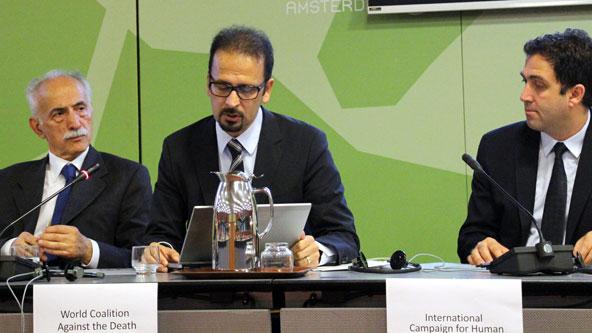
Article(s)
NGOs join forces to tackle capital punishment at Iran’s rights review
By Thomas Hubert, on 30 October 2014
Several World Coalition members are among organisations co-ordinating their efforts to help the international community put pressure on Iran over its use of the death penalty.
2014
Iran (Islamic Republic of)
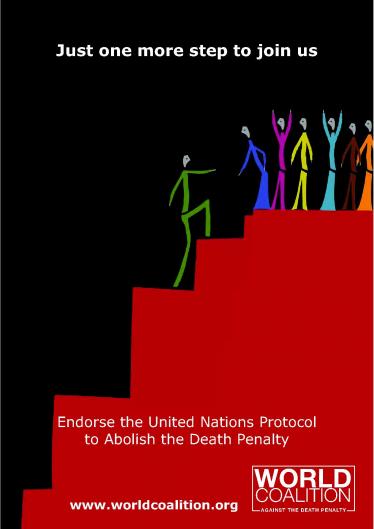
Just One More Step: Ratifying International and Regional Protocols
on 28 March 2022
As of 10 June 2024, 91 of the 173 States parties to the ICCPR have ratified or acceded to its Second Optional Protocol aiming at the abolition of the death penalty, most recently Côte d’Ivoire (3 May 2024), Kazakhstan (24 March 2022), Armenia (18 March 2021), Angola (2 October 2019) and the State of […]
2022
Central African Republic
Chad
Congo
Fiji
Ghana
Marshall Islands
Samoa
Sierra Leone
Suriname
Zambia
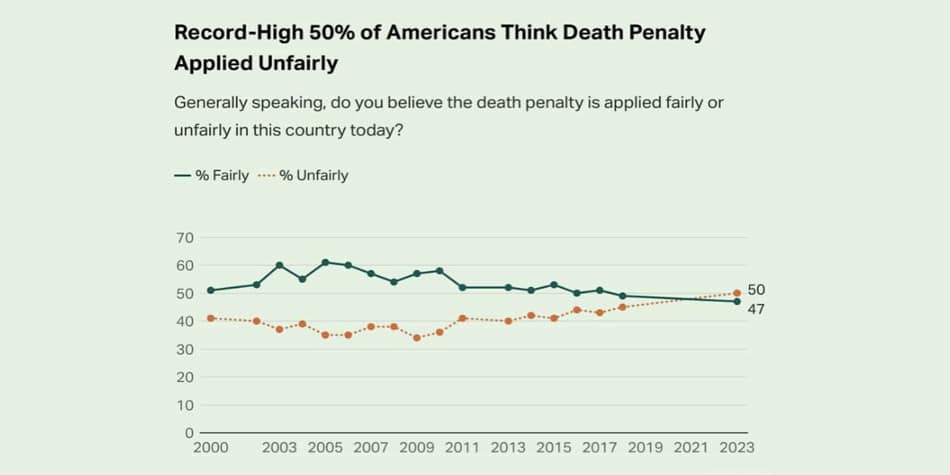
Article(s)
The unprecedent shift in attitudes towards abolition in the US
By World coalition against the death penaly, on 22 March 2024
The Death Penalty Information Center’s 2023 report highlights a rising trend towards abolition in the US, evidenced by a decrease in states conducting executions and heightened backing for individuals asserting innocence. In 2023, the United States witnessed 24 executions, 21 death sentences, and three exonerations, reflecting this evolving trend.
2024
Trend Towards Abolition
United States
Document(s)
Sentenced to death without execution: Why capital punishment has not yet been abolished in the Eastern Caribbean and Barbados
By Death Penalty Project, on 1 January 2020
2020
NGO report
More details See the document
The report Sentenced to Death Without Execution, Why capital punishment has not yet been abolished in the Eastern Caribbean and Barbados, was published on 7 April 2020. It presents the views of opinion formers and was written by Roger Hood and Florence Seemungal with the assistance of Amaya Athill.Six independent nations in the Eastern Caribbean – Antigua and Barbuda, Dominica, Grenada, St Kitts and Nevis, St Lucia, and St Vincent and the Grenadines, all members of the Organisation of Eastern Caribbean States (OECS) – and Barbados, retain the death penalty for murder. Most of these countries have not executed anyone sentenced to death for at least ten years with the vast majority not carrying out an execution for more than twenty years.This independent empirical study, which presents the views of 100 ‘opinion formers’, drawn from the seven jurisdictions, aims to shed light on why these countries hang on to capital punishment and what are the barriers to the complete abolition of the death penalty in these nations. The respondents were asked about their knowledge of the use of capital punishment in their respective countries and the extent to which, and why, they either supported the policy of retaining the death penalty or were in favour of its abolition, as well as the factors, beliefs, and assumptions that appeared to account for their government’s unwillingness to embrace complete abolition.Key findings include:- Across these seven nations, 48 of the interviewees favoured retention of the death penalty (18 of them strongly) and 52 were in favour of its abolition (30 of them strongly) Of those who favoured retention of the death penalty, only a minority were committed to retaining it: only 10 of 48 interviewees said they would ‘strongly oppose an Act of Parliament to completely abolish the death penalty by definitely voting against it’. Respondents believed the best strategies to persuade their respective governments to embrace reform were: ‘through creating an influential civil society pressure group ‘Citizens Against the Death Penalty’; by ‘mounting a legal challenge to the constitutionality of the death penalty’; or by ‘persuading the government to establish a high-level commission to report on the subject’.
- Document type NGO report
- Themes list Legal Representation, Mandatory Death Penalty,
Article(s)
Paris activists lie down against US federal executions
on 10 July 2009
ACAT-France and Amnesty International France staged their 9th “die-in” against the death penalty in the United States.
2009
Death Row Conditions
France
France
Innocence
United States

18th World Day Against the Death Penalty: Access to Counsel – A Matter of Life or Death
on 18 September 2020
Without access to effective legal representation during arrest, detention, trial and post-trial, due process cannot be guaranteed. In a capital case, the consequences that can arise from a lack of effective legal representation can be nothing less than the difference between life and death. On the national and international levels, the right to legal representation […]
2020
Public Opinion
Article(s)
3rd World Congress Report: a 400-page strategy
on 22 April 2008
The report of the Paris World Congress, organised by Together Against the Death Penalty with the help of the World Coalition in Paris in 2007, is just out. Its aim is to serve as a “guide to abolitionist strategy”.
2008

Article(s)
Sentenced to death without execution: Why capital punishment has not yet been abolished in the Eastern Caribbean and Barbados
By The death penalty project, on 4 May 2020
Roger Hood and Florence Seemungal with the assistance of Amaya Athill, published a empirical study aims to shed light on why Eastern Caribbean States and Barbados hang on to capital punishment even though they haven’t carried out any executions in the last ten years.
2020
Barbados

Article(s)
ADPAN welcomes Mongolia’s decision abolish death penalty in law
By ADPAN, on 18 December 2015
Mongolia abolished the death penalty for all crimes in law on 3 December 2015 by adopting a new Criminal Code without any reference to capital punishment. Mongolia had already taken a strong commitment in 2012 by ratifying the Second Optional Protocol to the ICCPR, and it was one of the World Coalition’s target countries for the follow-up of the ratification campaign. The new Criminal Code will come into effect in September 2016
2015
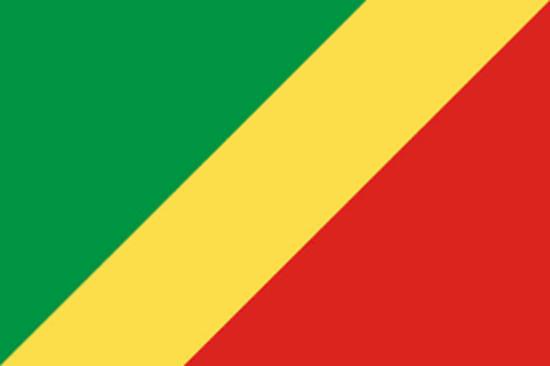
Article(s)
Congo’s Presidential Election Strengthens the Controversial New Constitution that Abolished Capital Punishment
By Delphine Lourtau and Marion Gauer, on 20 April 2016
On March 20, 2016, a tense presidential election in the Republic of the Congo resulted in the re-election of President Denis Sassou Nguesso, who has been in power for a total of 32 years. One of the election’s least discussed outcomes is its solidification of the new constitution that President Sassou introduced last year and that provides for abolition of the death penalty.
2016
Congo
Document(s)
Taiwan: Amicus Curiae submission by Amnesty International and the World Coalition Against the Death Penalty to the Constitutional Court
By Amnesty International, on 23 April 2024
2024
NGO report
Taiwan
zh-hantMore details See the document
Published on April 8, 2024.
As the Constitutional Court of the Republic of China considers a challenge to the constitutionality of the death penalty, Amnesty International Taiwan and the World Coalition Against the Death Penalty submitted a joint amicus curiae intervention, to ensure the protection of the rights of all those under sentence of death. The amicus interveners argue that the use of the death penalty in the Republic of China constitutes a violation of human rights as guaranteed under the Constitution and international law and standards; and sets the country against the global trend, which remains overwhelmingly in favour of abolition.
- Document type NGO report
- Countries list Taiwan
- Available languages 憲法法庭法庭之友意見書 主案案號:111年度憲民字第904052號 法庭之友:國際特赦組織台灣分會 均詳委任狀 代 表 人:林綉娟 理事長 代 理 人:陳瑋珊 律師 均詳委任狀 均詳委任狀
Document(s)
Mobilization Kit 2010
By World Coalition against the death penalty , on 10 October 2010
2010
Campaigning
Trend Towards Abolition
More details Download [ pdf - 138 Ko ]
Every year, the World Coalition Against the Death
Penalty (WCADP) calls for local initiatives worldwide.
The events involve citizens and organisations
supporting the abolition of capital punishment and
comprise debates, concerts, press releases or any
other action which would give the global abolition claim
an international boost.
This Day is aimed at both political leaders and public
opinion in countries where the death penalty has or
has not yet been abolished: people have to remember
the meaning of abolition and pass it down through the
generations.
They must be aware that justice without the death
penalty is possible
- Document type Campaigning
- Themes list Trend Towards Abolition
Document(s)
Estimating the effect of death penalty moratoriums on homicide rates using the synthetic control method
By Stephen N. Oliphant, on 18 September 2022
2022
Academic report
Moratorium
United States
More details See the document
Research examining death penalty deterrence has been characterized as inconclusive and uninformative. The present analysis heeds a recommendation from prior research to examine single-state changes in death penalty policy using the synthetic control method. Data from the years 1979–2019 were used to construct synthetic controls and estimate the effects of death penalty moratoriums on homicide rates in Illinois, New Jersey, Washington, and Pennsylvania. Moratoriums on capital punishment resulted in nonsignificant homicide reductions in all four states.
- Document type Academic report
- Countries list United States
- Themes list Moratorium
Document(s)
American Death Penalty Exceptionalism, Then and Now
By Jordan Steiker, California Western International Law Journal , on 1 February 2024
2024
Academic Article
United States
More details See the document
Published in October 2023.
The most commonly observed fact of American capital punishment is its present outlier status: the United States (U.S.) is the only developed Western democracy that retains the death penalty, and it does so not simply as a matter of law, but as a matter of practice, conducting numerous executions every year. This “exceptionalism” with respect to the death penalty is noteworthy, but focusing on present-day American retention obscures many additional aspects of American death penalty exceptionalism. This Keynote will trace several ways in which the American death penalty was an outlier at its founding and throughout its subsequent history, as well as the varied aspects of its exceptionalism today. I will conclude by predicting that U.S. exceptionalism will soon come to an end–with an “exceptional” form of death penalty abolition, traceable to the distinctive path of the American death penalty
- Document type Academic Article
- Countries list United States
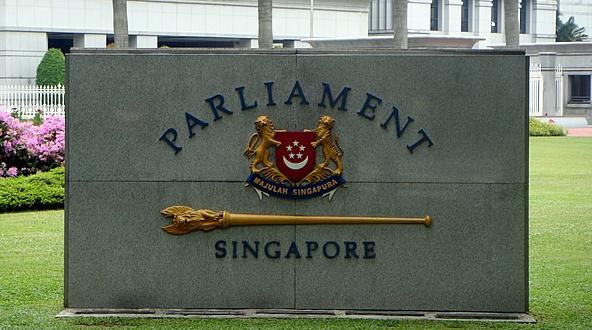
Article(s)
Singaporean and Malaysian activists welcome changes in their country
By World Coalition Against the Death Penalty, on 16 July 2012
In Singapore and Malaysia, governments are considering removing mandatory death penalty in some drug and murder cases. A move welcomed by activists on the ground, though they consider it “only a small step in the right direction”.
2012
Drug Offenses
Malaysia
Singapore
Article(s)
Jamaica vote illustrates retentionist trend in the Caribbean
on 9 January 2009
Jamaican lawmakers voted to keep capital punishment and the government seems determined to use it. Caribbean abolitionists are battling similar moves across the region.
2009
Jamaica
Public Opinion
Saint Kitts and Nevis
Article(s)
For ACATs, every executed person “is one of us”
on 22 January 2008
Wherever the Action by Christians for the Abolition of Torture (ACAT) is present, the struggle against the death penalty is an important element within their commitment to respect for human dignity.
2008
Benin
Democratic Republic of the Congo
Germany
Moratorium
Public Opinion
Spain
Article(s)
E Book review: a guidebook to the death penalty in Asia
on 10 March 2009
A new, authoritative study sheds a new light on capital punishment across Asia and may help abolitionists enhance their strategies.
2009
China
Japan
Philippines
Republic of Korea
Taiwan
Viet Nam
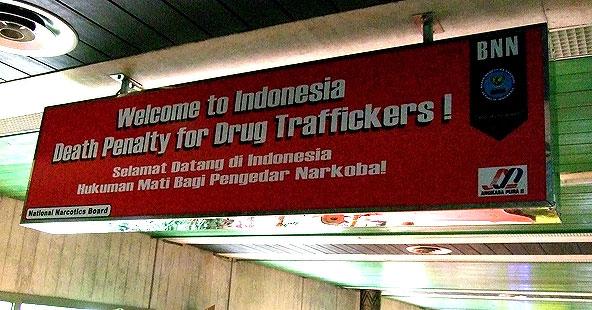
Article(s)
Indonesia: execution for drug crimes is no solution
By World Coalition Against the Death Penalty, on 26 January 2015
In an open letter, the World Coalition and its members, including KONTRAS and Amnesty International, condemn the Indonesian government’s politicizing of the death penalty to show its commitment to eradicating drug-related crimes. Recent resumptions of executions show one thing, they are carried out for political reasons only: in Pakistan to show that it is tough on terrorism, Jordan that it tough on crime and Indonesia that it is tough on drugs. Instead, those states should abolish the death penalty to show their commitment to upholding human rights. The next World Day against the Death Penalty will be dedicated to the issue of capital drug crimes.
2015
Drug Offenses
Indonesia
Article(s)
Death row inmates and abolitionists take Uganda’s death penalty to court
on 11 September 2008
Hundreds of Ugandan death row inmates and those who support them are awaiting a final decision in the constitutional case they have taken against the death penalty in their country.
2008
Fair Trial
Uganda
Article(s)
Campaigning for the ratification of the Second Optional Protocol
on 16 June 2007
What if abolitionists were able to begin their next appeal, with a sentence to this effect: “A majority of countries has formally ratified a United Nations treaty permanently banning the death penalty.”
2007
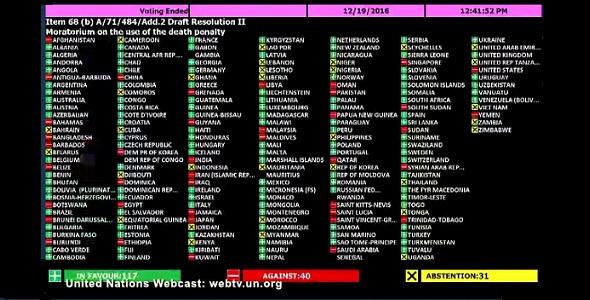
Article(s)
The UN General Assembly voted overwhelmingly for a 6th resolution calling for a universal moratorium on executions
By Elise Guillot et Aurélie Plaçais, on 20 December 2016
On 19 December 2016, with 117 States voting in favour of the resolution, the UN member states reasserted their support for a universal moratorium on the use of the death penalty.
2016
Clemency
Moratorium
Document(s)
Yemen – Committee on the Elimination of Discrimination Against Women – Death Penalty – September 2021
on 20 September 2021
2021
NGO report
World Coalition
Women
Yemen
More details Download [ pdf - 272 Ko ]
Women in conflict with the law in Yemen are at risk of experiencing gender-based discrimination within the legal system and while detained. Such discrimination is particularly acute when women are at risk of being sentenced to death. For example, in Houthi-controlled parts of Yemen, women are in danger of being sentenced to death for “spying,” often based primarily on the conduct of their male family members. In parts of the country controlled by the internationally recognized Government of Yemen, women accused of capital offenses are denied legal aid to mount a successful defense. And because of the mandatory nature of the death penalty for crimes such as murder, courts do not take into account an accused woman’s experiences of gender-based violence that may have motivated her actions. Women are also often financially unable to gather sufficient resources to pay “blood money” to victims’ families. Detention conditions for women, particularly in Houthi-controlled parts of Yemen, amount to cruel, inhuman, and degrading treatment and in some cases prison authorities torture women detainees.
Because of continued internal conflict in Yemen, there is limited official data regarding the number of women currently sentenced to death. For the same reason, there is only limited information regarding detention conditions of women sentenced to death.
- Document type NGO report / World Coalition
- Countries list Yemen
- Themes list Women

Member(s)
International Organization for Diplomatic Relations
on 30 April 2020
The International Organization for Diplomatic Relations (IODR), also known as “Correspondants Diplomatiques” intends to promote alliance and cultural cooperation through the exchange of documents, the organization of conferences, concerts, and events of various kinds, and publications. It promotes solidarity between people and individuals and the full realization of the basic rights of man, as inspired […]
2020
Malta
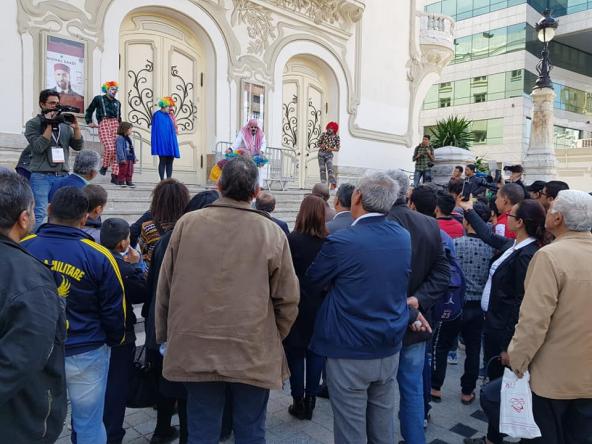
Article(s)
Arab League Summit: the death penalty at the heart of the alternative summit organized by civil society
By Hédia Zaalouni, on 10 May 2019
On the occasion of the 30th session of the Arab League Summit, which took place in Tunis from 26 to 31 March 2019 and brought together 21 Arab delegations, a parallel counter-summit, organized by civil society, was held to address the issue of human rights in the Arab world.
2019
Tunisia
Article(s)
Can the US move towards abolition under Obama?
on 20 January 2009
The new president’s nominee for the post of attorney general opposes the death penalty and the number of executions and sentences is falling in the US.
2009
United States
Article(s)
Indonesian activists face upward death penalty trend
on 10 February 2009
Indonesia-based researcher Dave McRae finds that a core group of abolitionists are battling a rise in the number of executions, death sentences and death row inmates in the country.
2009
Cruel, Inhuman and Degrading Treatment and Punishment
Drug Offenses
Indonesia
Public Opinion
Article(s)
What now for Mumia?
on 28 April 2008
On 27 March, a US federal appeals court overturned Mumia Abu-Jamal’s death sentence, but not his conviction for murder. His lead counsel Robert R. Bryan gives his reaction to the ruling and the next steps in America’s most high-profile capital case.
2008
Fair Trial
United States
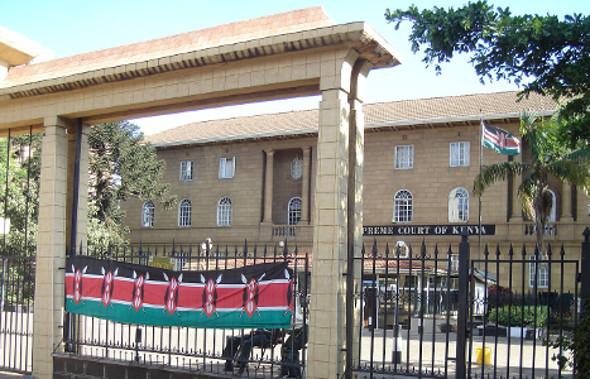
Article(s)
The Supreme Court of Kenya declares the mandatory death penalty unconstitutional
By Thalia Gerzso, on 23 January 2018
On December 14, 2017, the Supreme Court of Kenya declared the mandatory death penalty unconstitutional. This landmark decision puts an end to several years of uncertainties and constitutes an additional step towards the abolition of the death penalty in the country.
2018
Kenya
Article(s)
World Day campaign launched!
on 13 August 2007
The countdown to the fifth World Day Against the Death Penalty on October 10 has begun. It will focus on the proposed resolution against capital punishment to be discussed in the UN this autumn.
2007
Moratorium
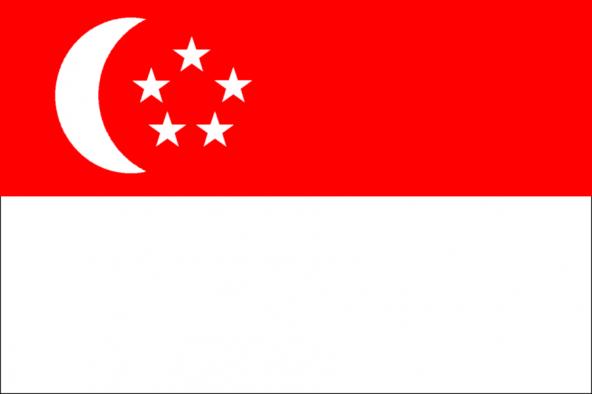
Article(s)
Singapore: the government threatens abolitionists and human rights defenders.
By Thalia Gerzso, on 24 January 2018
Despite a death penalty reform in 2013, Singapore continues to impose the mandatory death penalty in a significant number of cases while repressing abolitionists and human rights defenders.
2018
Singapore
Article(s)
The death penalty at the heart of ACHPR debates
on 18 May 2012
The 51st Ordinary Session of the African Commission on Human and Peoples’ Rights (ACHPR) was held in Banjul from April 18 to May 2, 2012. During the session, the Commission presented its “Study on the question of the death penalty in Africa” prepared by the Working Group on the death penalty of the ACHPR.
2012
Angola
Burundi
Gabon
Moratorium
Rwanda
Somalia
South Sudan
Sudan
Togo
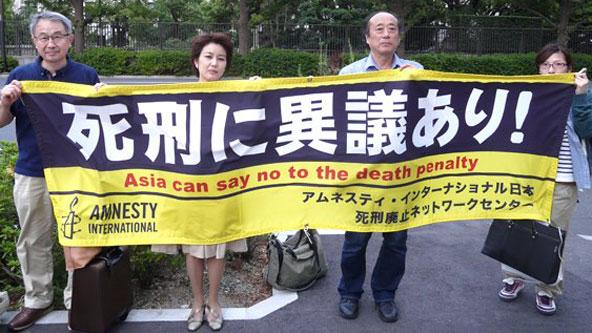
Article(s)
ADPAN network keeps up abolitionist fight
By Anti-Death Penalty Asian Network (ADPAN), on 10 October 2012
The Anti-Death Penalty Asia Network, which was founded on 10 October 2006, is again taking action this World Day Against the Death Penalty and takes stock on 10 years of progress in Asia – and on the challenges ahead.
2012
Page(s)
What is the Risk that the Death Penalty Will Return in Your Country?
on 20 August 2021
This interactive tool will allow you to identify the threat levels of the resurgence of the death penalty in your country. It is based on key indicators drawn from the experience of the World Coalition’s pilot project in three countries: the Maldives, the Philippines and Turkey from 2018 to 2021.
2021
Article(s)
Petition against the Death Penalty
By World Coalition Against the Death Penalty, on 1 October 2011
139 nations have already abolished the death penalty. In December 2012, the United Nations’ General Assembly will vote on a resolution calling for a worldwide halt to its use. We, the undersigned, in recognition of the five million people who signed the moratorium petition that was handed to the United Nations’ General Assembly in […]
2011
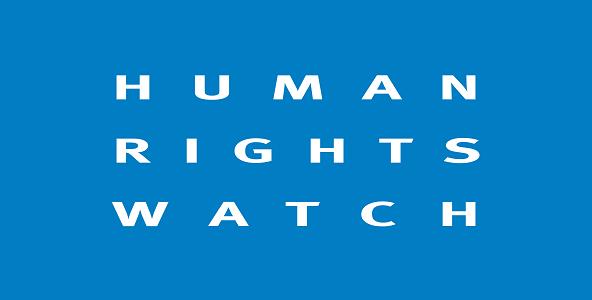
Article(s)
The Death Penalty in Human Rights Watch “World Report 2020”
By Majdoulin Sendadi, on 6 February 2020
HRW, a member organization of the World Coalition Against the Death Penalty, focused its report on human rights practices in almost 100 countries, including on abuses in civil and political rights.
2020
Article(s)
Legal Officer – The Death Penalty Project
By The Death Penalty Project, on 23 January 2018
The Death Penalty Project recruits a Legal Officer.
2018
United Kingdom
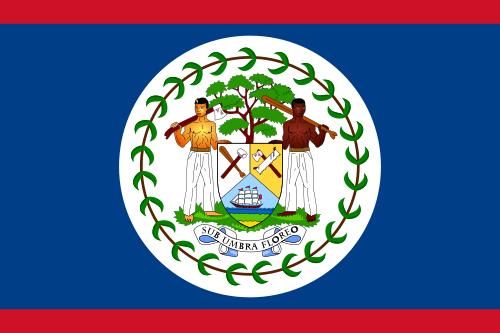
Article(s)
Belize PM aims to amend constitution to resume executions
on 9 June 2011
The Government of the small Caribbean nation has recently introduced a Constitution Amendment Bill, which seeks to make it clear that the death penalty is not unconstitutional.
2011
Belize
Belize
Legal Representation
Trinidad and Tobago
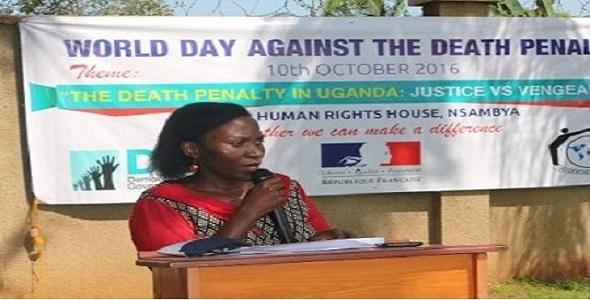
Article(s)
Pardon Prisoners On Death Row
By Lucy Peace Nantume, on 8 November 2016
At the end of October, the death sentences of more than 2,500 prisoners were commuted by the Kenyan President. The presidential power of mercy was also recently exercised by the Zimbabwean President, where 10 death row prisoners were pardoned.
2016
Clemency
Kenya
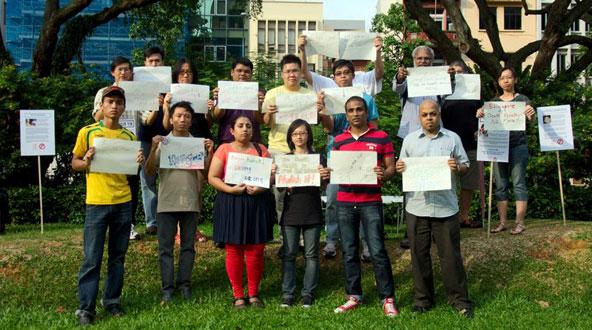
Article(s)
Migrant workers facing capital punishment show need for alternative sentences
By Think Centre, on 26 April 2012
Four Singapore-based organisations denounce the high risk of miscarriage of justice in recent death sentences handed down on poor immigrants and calls for the abolition of the death penalty in the city-state.
2012
Cruel, Inhuman and Degrading Treatment and Punishment
Moratorium
Singapore

Member(s)
Coalizione italiana contro la pena di morte
on 30 April 2020
The Italian Coalition to Abolish the Death Penalty (ICADP) was established to form a network between both Italian and foreign groups, associations, movements, and individuals that oppose capital punishment, and to coordinate their work and efforts. The ICADP holds talks about the death penalty around the world, spreads information and promotes campaigns. It is especially […]
2020
Italy
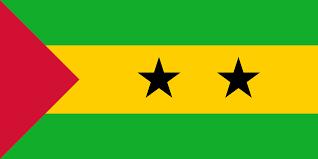
Article(s)
São Tomé and Príncipe ratifies OP2 and approves total and definitive abolition of the death penalty
By Elise Guillot, on 18 January 2017
On 10 January 2017, São Tomé and Príncipe ratified the Second Optional Protocol to the International Covenant on Civil and Political Rights, aiming at the abolition of the death penalty and became its 84th State party.
2017
Sao Tome and Principe
Article(s)
Campaigners and political leaders unite against the death penalty
on 24 February 2010
Representatives from 56 abolitionist and retentionist countries attended the opening session of the World Congress Against the Death Penalty in Geneva.
2010
Belarus
France
Italy
Mongolia
Norway
Qatar
Senegal
Spain
Switzerland
Viet Nam
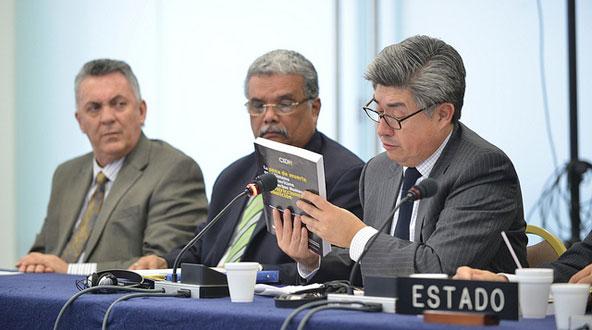
Article(s)
Organisation of American States considers moratorium
By Tiziana Trotta, on 15 March 2013
The Inter-American Commission on Human Rights warns that litigation is insufficient to combat the death penalty.
2013
Argentina
Brazil
Costa Rica
Cuba
Dominican Republic
Ecuador
Guatemala
Mexico
Moratorium
Panama
Suriname
Trinidad and Tobago
United States

Article(s)
Statement delivered to ACHPR on its 68th Ordinary Session
By FIACAT, FIDH, WCADP, Avocats Sans Frontières, COJESKI-RDC, ECPM, RAL and Reprieve, on 12 May 2021
Oral statement on behalf of FIACAT, FIDH, World Coalition against the Death Penalty, ECPM, Avocats sans frontières, COJESKI-RDC, ECPM, RAL and Reprieve on the activities of the Members of the Commission and the Special Mechanisms.
2021
Cruel, Inhuman and Degrading Treatment and Punishment

Helping the World Achieve a Moratorium on Executions
on 20 December 2022
In 2007, the World Coalition made one of the most important decisions in its young history: to support the Resolution of the United Nations General Assembly for a moratorium on the use of the death penalty as a step towards universal abolition. A moratorium is temporary suspension of executions and, more rarely, of death sentences. […]
2022
Moratorium

Article(s)
Does one year of “double zero” mean the death penalty has been repealed? How close is Taiwan to abolishing capital punishment?
By Lin Hsin-yi, Executive Director of the Taiwan Alliance to End the Death Penalty, on 28 April 2022
After the end of the last workday of 2021, it became clear that no one would be sentenced to death or executed that year – the first time ever that Taiwan has experienced “double-zero.”
2022
Taiwan
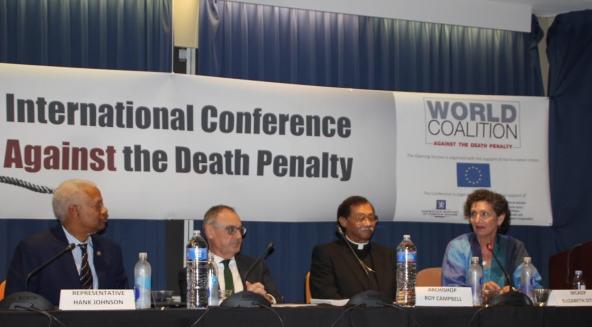
Article(s)
International Conference Against the Death Penalty: abolistionists are united and determined
By Lorène du Crest, on 18 July 2017
The World Coalition Against the Death Penalty celebrated its 15th anniversary with an International Conference and its General Assembly on 22-24 June in Washington DC.
2017
Jobs
USA AND THE GREATER CARIBBEAN (UGC)
on 19 September 2024
Available grants are indicated below, with the specific target countries and the specific maximum amounts for each Worldwide Grant Grant UGC 1 Suriname Grant UGC 2 USA How to apply? Worldwide Grant 8 grants of maximum 1,000 EUR each on data collection gathering on intersectional discrimination faced by women and/or LGBTQIA+ people sentenced to death. […]
2024
Document(s)
Death Penalty Politics: The Fragility of Abolition in Asia and the Pacific
By Mark Finnane, Mai Sato and Susan Trevaskes, on 1 September 2022
2022
Academic report
More details See the document
Despite a steady increase worldwide in the number of states that have abolished the death penalty, capital punishment remains a troubling presence in the international order. The world’s leading powers in terms of economics and population include the retentionist states of China, India, Japan and the United States of America (USA). It seems there is no linear path to abolition, and its achievement is indeterminate. Yet, in international human rights law, death penalty abolition is a powerful norm embraced by half the countries across the world. While the majority of death penalty research has emanated from and focuses on the USA, well over 90 per cent of global executions occur in Asia, which lags behind the global trend towards abolishing the death penalty. Our symposium and this collection seek to bring perspectives from a variety of disciplines and methods—historical, legal, sociological, comparative— to bear on the questions of retention and abolition in a variety of jurisdictions and time periods.
This article was first published in Crime Justice Journal: https://www.crimejusticejournal.com/issue/view/119
- Document type Academic report
Article(s)
Mexican executed in Texas
on 5 August 2008
Jose Medellin, a Mexican sentenced to death in Texas, was executed on August 5 despite serious flaws in his trial. The Texas Coalition to Abolish the Death Penalty denounces an “irrevocable breach of international law”.
2008
Legal Representation
Mexico
United States
Article(s)
Chinese death penalty targets minorities
on 19 November 2009
The recent execution of several Uyghurs and Tibetans after ethnic clashes in China was met with severe international criticism.
2009
China
Fair Trial
Legal Representation
Article(s)
Kenya’s mandatory death penalty ruled unconstitutional
on 6 August 2010
A joint effort by Kenyan and British lawyers and NGOs resulted in a court decision overturning all death sentences for murder. Legislation making capital punishment the only possible penalty for certain crimes is invalid.
2010
Cruel, Inhuman and Degrading Treatment and Punishment
Kenya
Kenya
Article(s)
Mental illness and the death penalty: a painful intersection
on 28 May 2008
Two leading American grassroots organisations have come together to raise awareness about the execution of mentally ill defendants.
2008
Mental Illness
Murder Victims' Families
United States
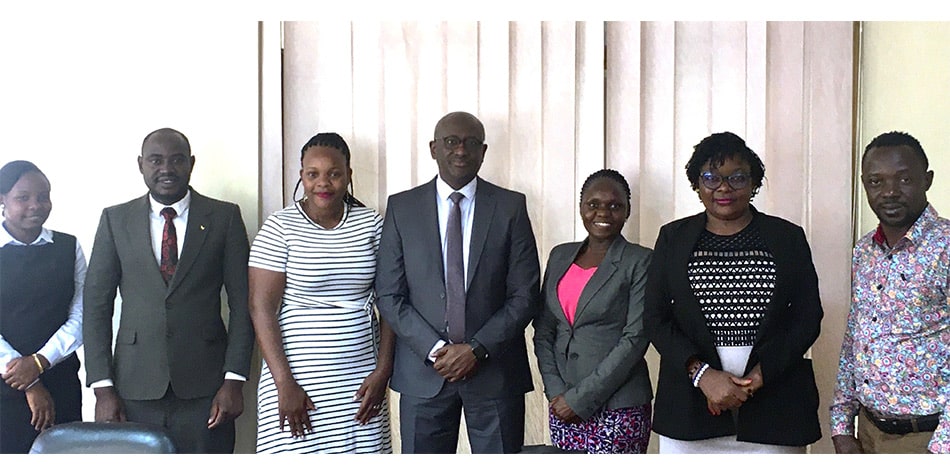
Article(s)
Abolition in Africa- 77th Ordinary Session of the African Commission on Human and Peoples’ Rights
By Yasin Sentumbwe Munagomba and Bronwyn Dudley, on 12 January 2024
The ACHPR (African Commission on Human and Peoples’ Rights) 77th Public Ordinary Session was held in Arusha, Tanzania from 20 October – 9 November 2023.
2024
Gender
Trend Towards Abolition
Uganda
United Republic of Tanzania

Article(s)
Executions for drug crimes: a violation of international law -international organizations
By Tiziana Trotta, on 15 October 2015
International organizations joined the 13th World Day Against the Death Penalty to stand against this cruel practice. United Nations, the European Union and the Inter-American Commission on Human Rights merged to claim that capital punishment is not the solution to deter drug crimes.
2015
Drug Offenses
Document(s)
More Indicators of the Falling Support for the Death Penalty
By Talia Roitberg Harmon and Michael L. Radelet, California Western International Law Journal , on 1 February 2024
2024
Academic Article
United States
More details See the document
Published on October 12, 2023.
In the seminal Furman v. Georgia case from 1972, the U.S. Supreme Court (in effect) invalidated all death penalty statutes then inforce in American jurisdictions. After many states went back to their legislative drawing boards, some of the revised statutes were approved by the Court in 1976. At that time, Gallup found that 66 percent of the American public supported the death penalty, while 26 percent stood opposed. While support grew to 80 percent in 1994, a recent Gallup Poll from October 2022 shows that this figure has dropped to 55 percent. Recently, only 36 percent of Americans still support the death penalty given the alternative punishment of life imprisonment.
- Document type Academic Article
- Countries list United States
Article(s)
UN Protocol on death penalty turns 20
on 15 December 2009
For 20 years, the United Nations Protocol to abolish the death penalty has been the only universal treaty of worldwide scope to prohibit executions and secure universal abolition of the death penalty for all crimes.
2009
Armenia
Burundi
Côte d'Ivoire
Dominican Republic
El Salvador
Kazakhstan
Kyrgyzstan
Latvia
Mauritius
Poland
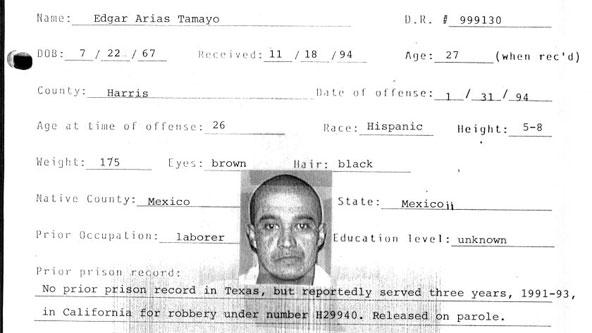
Article(s)
Mexico fights on after Texas illegally executes one of its nationals
By Thomas Hubert, on 23 January 2014
The execution of Edgar Tamayo in violation of an international court order spurs Mexico to pursue its efforts in favour of consular rights in the US, a diplomat says.
2014
Mexico
United States
Article(s)
Abolition in New Mexico hailed around the world
on 19 March 2009
New Mexico’s governor Bill Richardson signed the repeal of the death penalty in to law on March 18, 2009, attracting praise from the global abolitionist community.
2009
United States

Article(s)
Gambia and Madagascar commit to irreversible abolition
By Aurelie Placais, on 22 September 2017
on 20 and 21 September 2017, Gambia signed and Madagascar ratified the Second Optional Protocol to the International Covenant on Civil and Political Rights, aiming at the abolition of the death penalty.
2017
Gambia
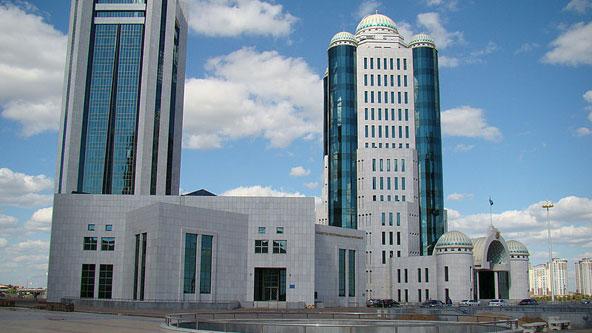
Article(s)
Kazakhstan Penal Code reform runs counter to abolitionist trend
By Anne Souléliac (Paris Bar), on 22 July 2014
The new Kazakh Penal Code provides for an increase in the number of capital crimes, even though Kazakhstan has been moving away from the death penalty for years and has a stated policy of meeting international standards.
2014
Kazakhstan
Kazakhstan
Terrorism
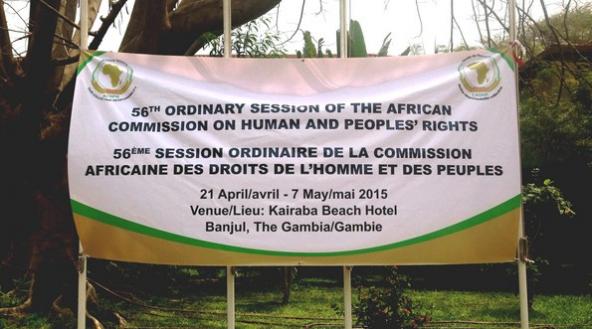
Article(s)
African Commission adopts draft Protocol on abolition
By Maria Donatelli, on 24 April 2015
At its 56th ordinary session, the African Commission on Human and Peoples Rights (ACHPR) put the abolition of the death penalty at the heart of its debates and adopted a draft regional treaty to help African Union member states move away from capital punishment.
2015

Member(s)
Comité des Observateurs des Droits de l’Homme (CODHO)
on 30 April 2020
On 1 July 1997 a group of lawyers, economists and political scientists from the Democratic Republic of Congo (DRC) held a meeting following the massacre of children by militiamen in North Kivu in the east of the country. Revolted by this unspoken tragedy, they decided to set up the Committee of Human Rights Monitors (Codho). […]
2020
Democratic Republic of the Congo
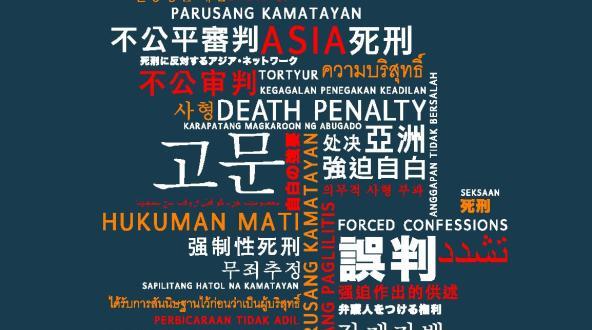
Article(s)
Asia: Stop executions and unfair trials
By ADPAN, on 6 December 2011
A hard-line group of Asian countries are defying the global trend against the death penalty and putting to death thousands of people after unfair trials every year, the Anti-Death Penalty Asia Network (ADPAN) said today in a new report.
2011

Article(s)
French youth event emboldens next abolitionist generation
By Bronwyn Dudley, on 22 October 2014
The testimony of an exonerated death row prisoners helped international students overcome initial awkwardness and launch into passionate debates at the invitation of Paris-based organisations on World Day Against the Death Penalty.
2014
France
Iran (Islamic Republic of)
Morocco
United States
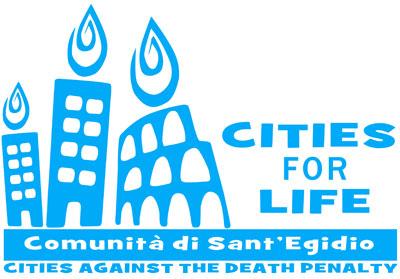
Article(s)
Cities for Life 2016: Let’s stay vigilant
By Emmanuel Trépied, on 19 December 2016
On 30 November, the International Day of “Cities for Life” was celebrated around the world. An opportunity to raise awareness among the civil society on the universal abolition.
2016
Public Opinion
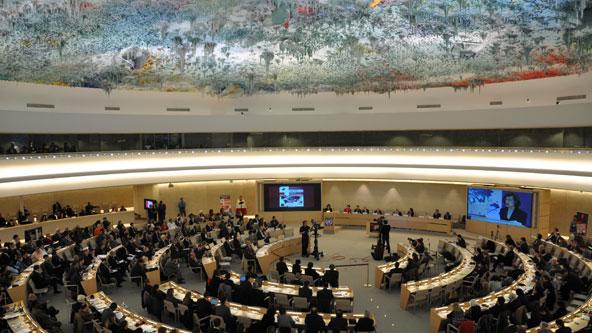
Article(s)
Discussion at the Human Rights Council of human rights violations related to the use of the death penalty
By Jessica Corredor, on 7 March 2017
From Zeid Ra’ad Al Hussein, United Nations High Commissioner for Human Rights, to abolitionist and retentionist government representatives and World Coalition members, participants to the Biennial high-level discussion on death penalty exchanged views in order to address human rights violations related to the use of the death penalty, in particular with respect to the prohibition of torture.
2017
Cruel, Inhuman and Degrading Treatment and Punishment

Member(s)
Association Justice et Miséricorde (AJEM)
on 30 April 2020
The Association Justice and Mercy (AJEM) is a Lebanese nonprofit, nonpolitical and nonsectarian nongovernmental organization (NGO) created in 1996 at the initiative of a group of social workers. AJEM deals mainly with the right of prisoners in Lebanon, and more generally with human rights, the fight against torture and other cruel, inhuman and degrading treatment, […]
2020
Lebanon
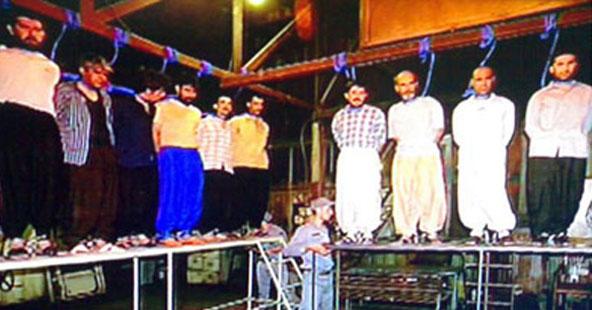
Article(s)
UN: freeze funding of Iran counter-narcotics efforts
By World Coalition Against the Death Penalty, on 17 December 2014
The World Coalition and its members call on UNODC to stop support to Iran as executions for drug trafficking surge.
2014
Drug Offenses
Iran (Islamic Republic of)
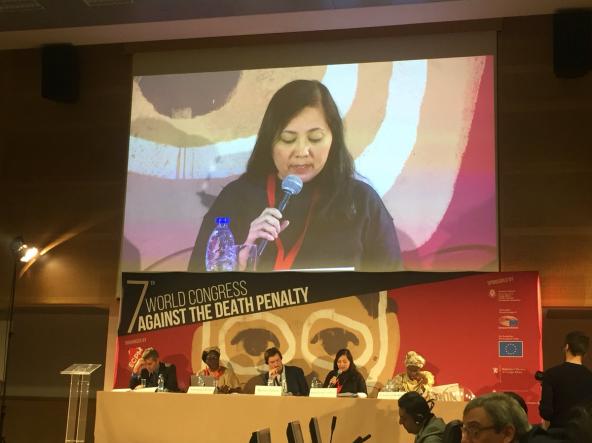
Article(s)
7th Congress – Preventing the resurgence of the death penalty
By Louis Linel, on 19 March 2019
The fragile victories of the abolitionist movement are being undermined by several states ready to resume the use of the death penalty, at the cost of abuses.
2019
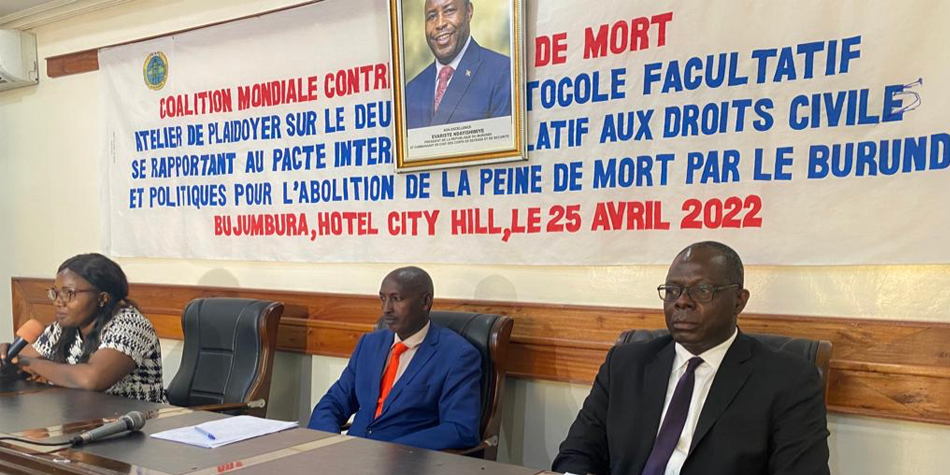
Article(s)
Burundi: Promising advocacy workshop for the ratification of the abolitionist treaty
By Sarah Saint-Sorny, on 10 June 2022
On April 25, 2022, the Burundian Prison Observatory (BPO) organized a one-day advocacy workshop on the ratification of the Second Optional Protocol to the International Covenant on Civil and Political Rights (OP2-ICCPR) with the support of the World Coalition Against the Death Penalty.
2022
Burundi

Article(s)
Advocating for the Adoption of the Draft Protocol by the African Union: A Step in the Right Direction for Abolition in Africa
By Florence Venunye Ayivor-Vieira and Hervé Nsambimana, on 15 December 2023
Advocacy in Addis-Ababa On the 10 October 2023, the FIACAT (International Federation of ACATs), and the World Coalition Against the Death Penalty, represented by Ms. Florence Ayivor-Vieira of ACAT-Ghana and Mr. Hervé Nsabimana of CODHAS (Centre d’observation des Droits de l’Homme et d’Assistance Sociale), Co-Chairpersons of the World Coalition’s working group on the draft protocol […]
2023
Trend Towards Abolition
Article(s)
Spot opportunities and focus on education, abolitionists are told
on 24 February 2010
The workshop on “Defining strategies for abolition” was an opportunity for abolitionists to share views and experience on what works – and what does not – when pushing for the repeal of the death penalty.
2010
Ghana
South Africa
Switzerland
Taiwan
Article(s)
“Ending the death penalty in Lebanon and worldwide”
on 5 November 2007
Over 75 people attended the conference focussing on the legal and social perspectives of the abolition of capital punishment in Beyrouth on October 17.
2007
Lebanon
Moratorium
Murder Victims' Families
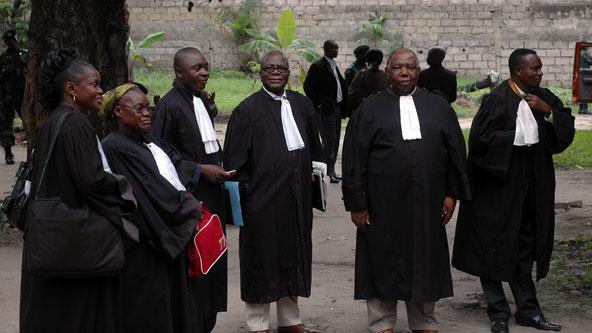
Article(s)
New defense manual to help lawyers in capital cases worldwide
By Thomas Hubert, on 29 May 2013
The World Coalition, together with Death Penalty Worldwide and the law firm of Fredrikson & Byron P.A., has launched the English and French editions of a manual compiling guidelines for defense lawyers whose clients face the death penalty at the 5th World Congress Against the Death Penalty.
2013
Legal Representation
Document(s)
Cameroon – Committee to Eliminate Racial Discrimination – Death Penalty – March 2020
By RACOPEM, ACAT Cameroun, on 21 March 2020
2020
NGO report
World Coalition
Cameroon
More details Download [ pdf - 1898 Ko ]
This report addresses Cameroon’s compliance with human rights obligations under the Convention on the Elimination of All Forms of Racial Discrimination, particularly with respect to the imposition of the death penalty against Anglophone Cameroonians.
By way of background, the Anglophone crisis in Cameroon began in 2016 as peaceful protests by lawyers and teachers demanding linguistic reforms but rapidly escalated into a war of secession that has killed thousands of people and displaced over one million.
The Cameroonian Criminal Code adopted in 2016 allows for the death penalty, including for vaguely defined terrorism-related offences. In this regard, the Anti-Terrorism Law of 2014 has been used to prosecute Anglophone human rights activists before military courts for acts of terrorism, secession, rebellion, and spreading false news, with the death penalty as a potential sentence in such cases.
While Cameroon ratified the International Covenant on Civil and Political Rights (ICCPR) in 1984, it has yet to ratify its Second Optional Protocol aiming at the abolition of the death penalty (ICCPR-OP2). Although no execution has taken place in Cameroon since 1997, civil society organizations estimate that 220 people currently are under sentence of death in Cameroon.
As discussed below, Cameroon fails to uphold its obligations under the International Convention on the Elimination of All Forms of Racial Discrimination because its domestic law and institutional and political framework do not sufficiently protect Anglophones facing the death penalty.
- Document type NGO report / World Coalition
- Countries list Cameroon
Article(s)
Joint Italian-Congolese effort against capital punishment
on 16 June 2009
World Coalition member organisation Hands Off Cain has launched a campaign targeting DRC’s opinion leaders. The government regards the renovation of the prison system as a prerequisite for abolition.
2009
Democratic Republic of the Congo
Italy
Moratorium
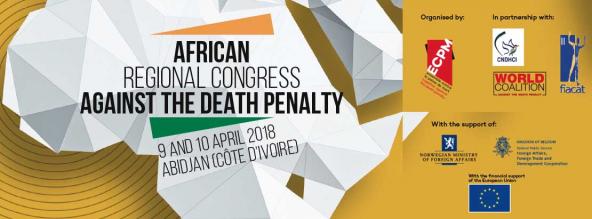
Article(s)
3rd Regional Congress Against the Death Penalty
By World Coalition Against the Death Penalty, on 13 March 2018
The African Congress will be held in Abidjan, Ivory Coast on 9-10 April 2018. Over 300 participants are expected.
2018
Article(s)
Book: a victory on the road to abolition
on 19 January 2010
The Taiwan Alliance to End the Death Penalty has just published Staving off the Executioner, a book describing the Taiwanese abolitionist movement’s strategies, challenges and successes.
2010
Fair Trial
Legal Representation
Taiwan
Taiwan

Article(s)
UN singles out Iraq’s ever-increasing practice of capital punishment
By Bronwyn Dudley, on 10 November 2014
A report on the death penalty by the UN mission to Iraq has unearthed startling new information about the use of capital punishment in the country. The study was released on the heels of the UN’s human rights review of Iraq, where the death penalty emerged as a primary concern.
2014
Cruel, Inhuman and Degrading Treatment and Punishment
Fair Trial
Iraq
Iraq
Terrorism
Article(s)
Two countries asked to ratify the UN Protocol on abolition
on 9 December 2009
As part of the campaign in favour of the treaty on the abolition of the death penalty, Chile and Spain encouraged the Dominican Republic and the Ivory Coast to ratify the text.
2009
Côte d'Ivoire
Côte d'Ivoire
Dominican Republic
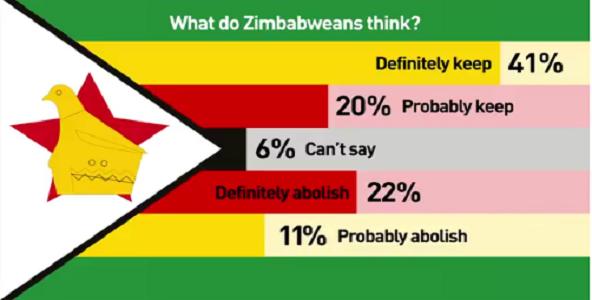
Article(s)
12 Years Without an Execution: Is Zimbabwe Ready for Abolition?
By Death Penalty Project, on 24 May 2018
The Death Penalty Project, in partnership with Veritas, launches “12 Years Without an Execution: Is Zimbabwe Ready for Abolition?” a national public opinion study, providing for the first time comprehensive and contextualised data on public attitudes towards the death penalty in Zimbabwe – a country that has not carried out any executions in over 12 years.
2018
Public Opinion
Zimbabwe
Article(s)
Internship opportunity at Centre on the Death Penalty, NLU Delhi
By NLU Delhi, on 1 April 2016
The Centre on the Death Penalty is keen to develop a robust and rewarding internship programme that will provide meaningful exposure to the complexities and nuances, in particular, of the administration of the death penalty and the criminal justice system in India more generally, therefore the centre introduces internship program where they accept interns on rolling basis.
2016
India

Article(s)
UN High Level Panel on the Death Penalty and Deterrence
By Grace O'Connor, on 25 February 2021
The UN Biennial High Level Panel on the Death penalty focused on the deterrent effect capital punishment has on crime. Representatives from member states, NGOs and NHRIs made statements to the high level panel discussing the deterrent theory.
2021
Public Opinion
Article(s)
California Democratic Party endorses abolition of the death penalty
on 12 May 2010
One of the two main political parties in the largest US State has taken a formal stance against capital punishment – with help from local abolitionist organisations.
2010
Public Opinion
United States
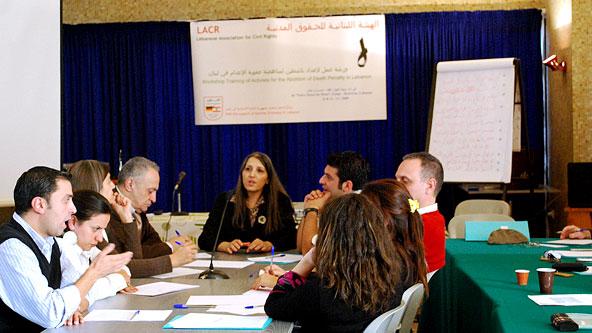
Article(s)
“Catastrophic” conditions on Lebanon’s death row
By Delphine Judith, on 31 May 2013
Ogarit Younan is a co-founder of the Lebanese Association for Civil Rights, which has just joined the World Coalition. She takes stock on the death penalty and abolitionist progress in Lebanon.
2013
Death Row Conditions
Lebanon

Member(s)
Journey of Hope… From Violence to Healing
on 30 April 2020
“Journey of Hope…from Violence to Healing is an organisation led by murder victim family members joined by death row family members, family members of the executed, the exonerated, and others with stories to tell, that conducts public education speaking tours and addresses alternatives to the death penalty. Every year, the organisation arranges a Journey of […]
2020
United States
Member(s)
Children Education Society (CHESO)
on 30 April 2020
The mandate of Children Education Society (CHESO) is: – To combat causes of most vulnerable children including children’s rights violations, poor governance, HIV/AIDS, poverty, climate change and reinforce realization of the children’s right to education -To eliminate bad policies and laws subjecting children to vulnerability – To end human rights violations subjecting children to vulnerability […]
United Republic of Tanzania
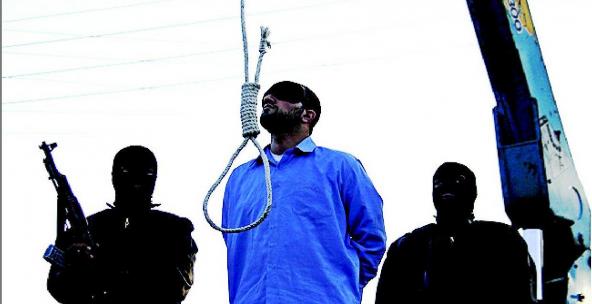
Article(s)
Drug-busting aid to Iran must be frozen
By Thomas Hubert, on 27 November 2012
The World Coalition is calling on international donors to stop helping Iran enforce abusive capital drug laws.
2012
Cruel, Inhuman and Degrading Treatment and Punishment
Drug Offenses
Iran (Islamic Republic of)

Article(s)
California narrowly rejects abolition
By Thomas Hubert, on 8 November 2012
Citizens of the largest US state have voted against an initiative to replace the death penalty with life sentences, but the results show abolitionist views have gained significant ground through the referendum campaign.
2012
Public Opinion
United States
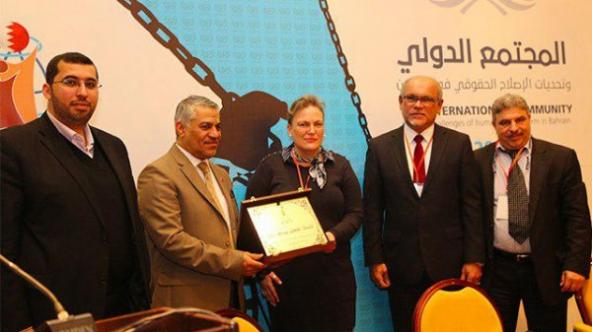
Article(s)
The 6th International Conference on Human Rights issues a warning on the alarming situation in Bahrain
By Emmanuel Trépied and Coalition marocaine contre la peine de mort, on 10 March 2017
The World Coalition was invited to take part in the 6th international Conference on Human Rights, on February 22nd, 2017 in Beirut. addressing the very worrying situation in Bahrain, the event resulted in a series of calls and recommendations.
2017
Bahrain
Cruel, Inhuman and Degrading Treatment and Punishment
Fair Trial
Moratorium
Terrorism

